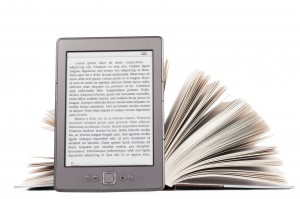Why Reading is Easier on Paper
If you’ve always felt that you have an easier time reading on paper than on a screen, you’re not alone. In fact, there is ample evidence to support this claim, which is covered in an article in a recent issue of Scientific American. The article looks at more than 100 studies conducted worldwide since the 1980s that compare how people read, comprehend and retain information on paper and on screens. The results show that while screens have made some improvements such as E-ink, which does a good job of imitating real ink, paper is still the preferred reading material and allows readers to better understand and retain the information there.
So what exactly makes reading on paper easier and more successful than reading on a screen? Essentially, the eye perceives text differently on paper and uses information from the entire page to help the brain associate information in the text with a static physical location. This helps the reader better retain the information and associate it with other parts of the text. Here are a few more examples of how the eye is trained to take in information from the physical book itself:
Oh Eye See
Ink and Paper
The ink and paper of a book reflect ambient light in the environment but produce no light of their own. Light on a computer screen, on the other hand, produces its own light, which over time makes the eye tired and strained, making reading more difficult.
Thickness
In a book, the reader can both see and feel the thickness of the number of pages he or she has read and the number of pages left to reader. This helps the brain create a map of where it is in the text, which forms a solid structural basis that helps it place information based on where it is physically located. Progress bars on a screen do not have the same effect.
Location of Text
If you have a favorite passage from a book, you probably remember not only what page it’s on, but where it is on the page. This is no accident. Your brain uses the location of the text as an anchor which helps tie down the information you want to retain.
Scanning
It’s easy to hold your place with a finger and flip ahead or behind a few pages to reread a section you want to go over without losing your place. On a screen, however, it’s easy to get lost and lose that anchor your brain needs, especially in long texts.

Advantage Book Binding has been in the book binding business since 1985, when we were founded on the principle “we do a quality book on time.” Since then we’ve seen plenty of changes both in and out of the industry. While some have sounded the death knell for books and other physical media, we believe that the fact that we continue to be an industry leader into the 21st century is a testament not only to our longevity as a company but to that of our craft. We think it’s important to keep books and physical media on the shelves, which is why we dedicate ourselves to providing you with the highest quality book binding and post press services available.
Keep up with us on Facebook, Google +, Twitter, and LinkedIn.
Source
http://twosidesus.wordpress.com/2013/12/02/scientific-american-why-the-brain-prefers-paper/
